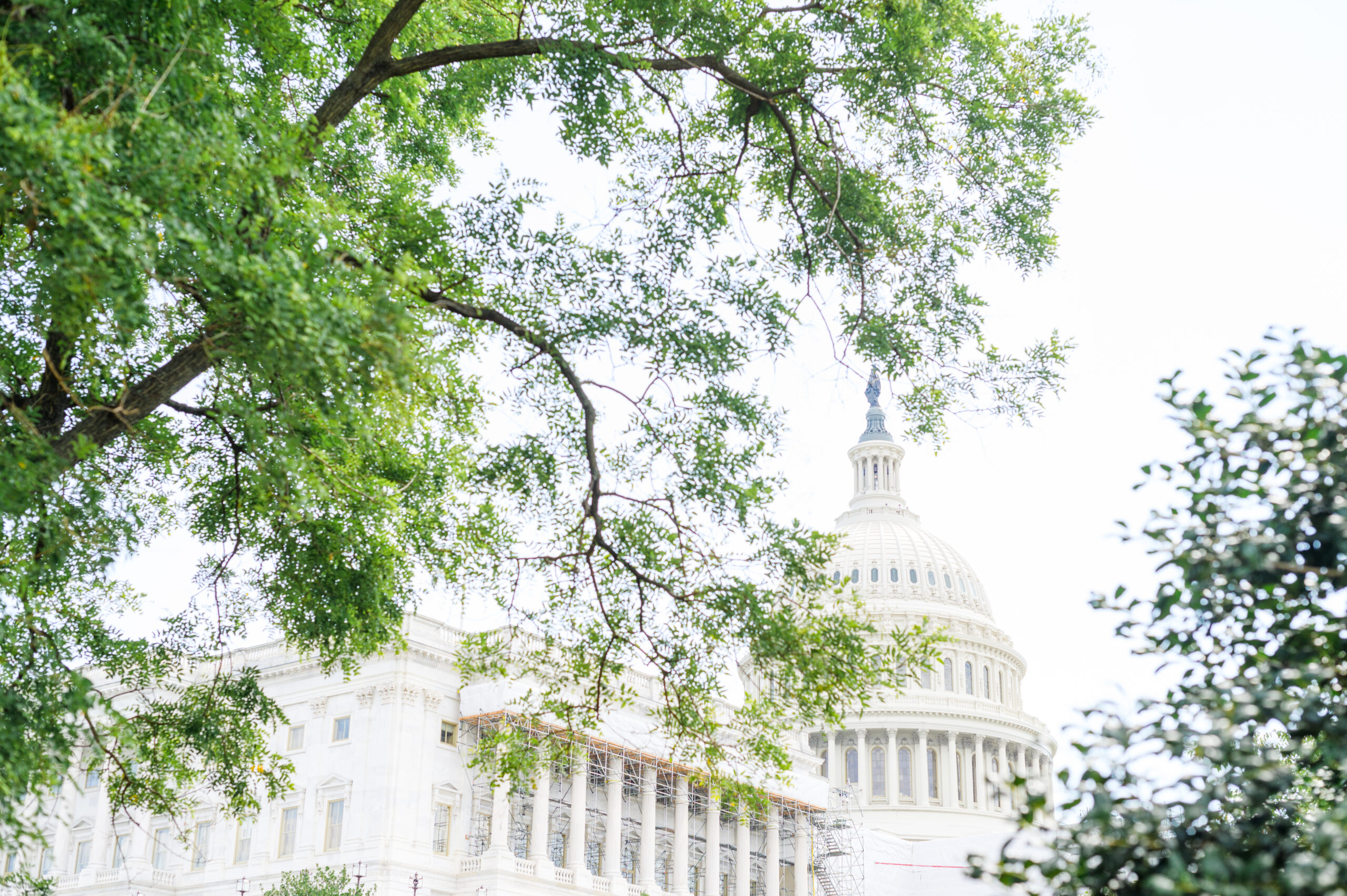HFA returned to Capitol Hill on Nov. 13 for its tenth annual Patient Fly-in and Congressional reception. Twenty-two community members from 16 different states came to Washington, D.C., for policy and advocacy briefings, followed by meetings on Capitol Hill with 35 Congressional offices.
Advocates asked lawmakers to support the HELP Copays Act (H.R. 830, S. 1375), a bill protecting patients from copay accumulator adjusters and copay maximizers. This bipartisan legislation would require health plans to count the value of drug copay assistance toward patient cost-sharing requirements, protecting people with bleeding disorders (and other serious health conditions) who rely on copay assistance to afford their life-saving medications.
Fly-in participants also asked their lawmakers to support the Safe Step Act (H.R. 2630, S. 1339): long-sought, bipartisan legislation to require health plans to offer clear, common-sense exceptions to any step therapy protocols. Enactment of these protections will empower individuals to navigate their insurance and help them access the treatments they need without harmful delays. Additionally, Fly-in participants sought Congressional support for the SSI Savings Penalty Elimination Act (H.R. 5408, S. 2767). This bipartisan legislation would increase the punitive and outdated asset limits that restrict eligibility for federal disability benefits. Those asset limits, not updated since the 1980s, prevent disabled Americans from saving for emergencies and can cause harmful gaps in health coverage (exceeding the asset limits by even a little bit can result in suspension of Medicaid coverage, which is linked to disability eligibility for many SSI beneficiaries).
For those who couldn’t come to Washington, D.C., HFA also hosted an online Virtual Week of Advocacy. Over 46 community members so far have used the HFA Legislative Action Center to make their voices heard on these important issues. The link is still live, so if you didn’t write to your lawmakers earlier in the month, please do so! Connect with your lawmakers today.
Quick Hits:
- HFA and other patient advocates were disappointed to learn (Nov. 28) that the federal government has chosen to appeal a Sept. 29 district court decision that ordered the U.S. Department of Health and Human Services to revise its rules governing copay accumulator adjusters.1 In a simultaneous but separate filing, HHS also asked the district court for clarification of the Sept. 29 decision. HHS’s motion to clarify states that the agency will undertake rulemaking to address the issues raised by the trial court’s decision – but also says that, pending the issuance of a new final rule, “HHS does not intend to take any enforcement action against issuers or plans based on their treatment of such manufacturer assistance.” Plaintiffs in the lawsuit strongly oppose HHS’s non-enforcement stance and will vigorously defend the appeal. This is a developing story.
- Federal regulators published the annual proposed Notice of Benefits and Payment Parameters rule (NBPP) for 2025 health plans. The draft 2025 NBPP contains language addressing the “non-essential health benefits” loophole that health plans exploit to implement copay maximizers (strategies that prevent copay assistance dollars from counting toward patient deductibles). HFA and coalition allies plan to submit comments on the draft NBPP by the deadline of Jan. 8, 2024.
- Congress again averted a government shutdown in mid-November when it passed a “laddered” continuing resolution, signed into law by the President on Nov. 16. The latest continuing resolution buys additional time for Congress to pass appropriations bills by Jan. 19, 2024 (agriculture/FDA, defense, transportation, energy) and by Feb. 2, 2024 (all others).
- Multiple PBM (pharmacy benefits manager) reform bills continued to advance through House and Senate committees in November. There is bipartisan and bicameral agreement on improving transparency; reducing cost-sharing for Medicare beneficiaries; banning the use of spread pricing when PBMs negotiate drug purchases for Medicaid; and delinking PBM compensation from drug prices.
- On Nov. 8, the U.S. Centers for Medicare and Medicaid Services released a new toolkit to support advocates helping consumers understand new rights and protections under the No Surprises Act. The No Surprises Act, signed into law in December 2020, protects Americans against surprise medical bills for emergency care, or for care from certain out-of-network providers in specific contexts.
- Open enrollment for 2024 health insurance coverage continues for individual insurance plans at healthcare.gov and for some employer health insurance programs. Don’t miss your opportunity to secure health coverage for the coming year! Please visit HFA’s updated Open Enrollment Guide and check out HFA’s other insurance resources to help you navigate the open enrollment process.




